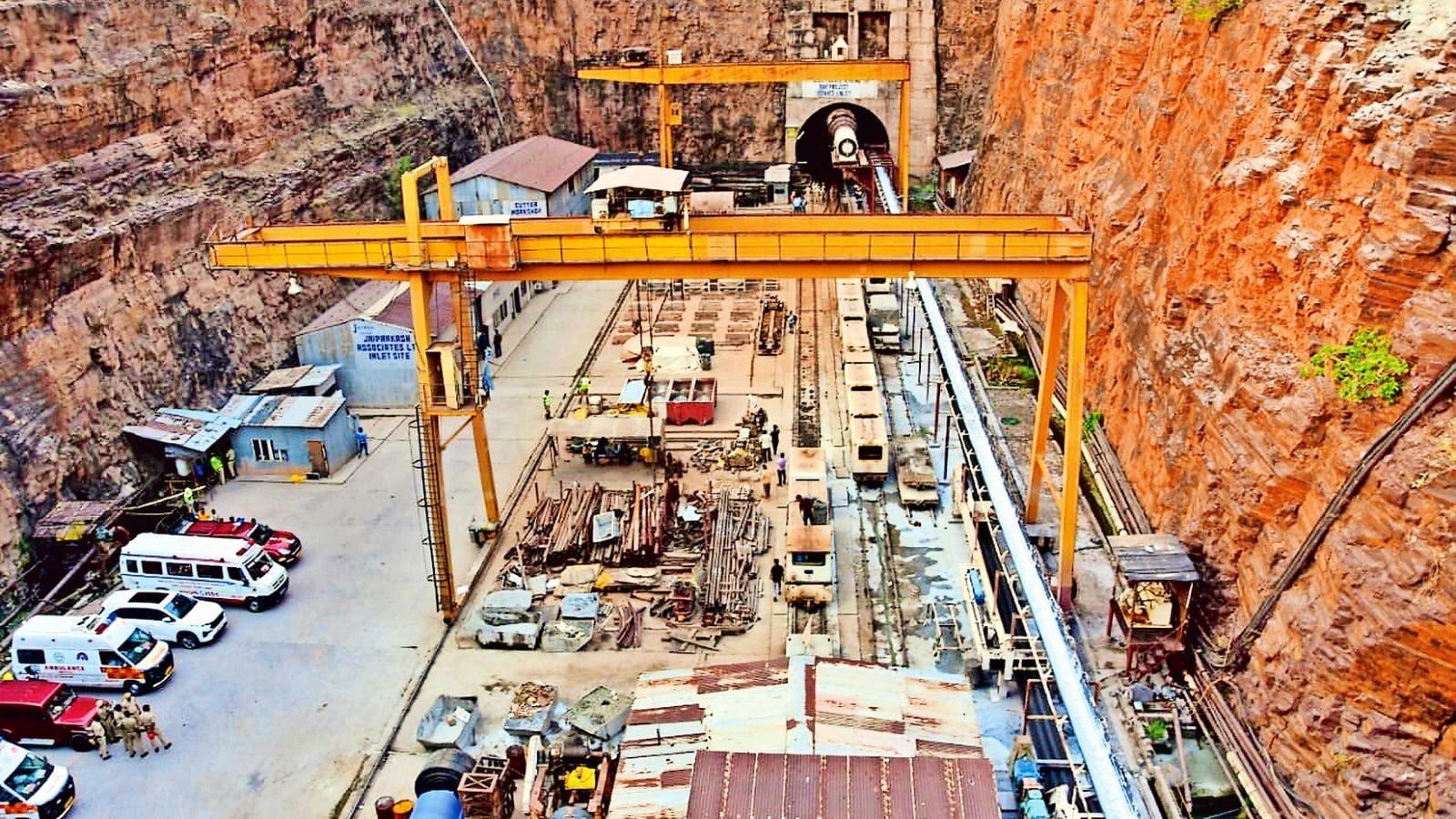 |
|
The article paints a grim picture of a tunnel collapse in Telangana that has left eight workers trapped, triggering a large-scale rescue operation and raising concerns about safety standards and worker welfare. The narrative unfolds through the voices of workers who narrowly escaped the incident, revealing a pre-existing awareness of water leakage within the tunnel – a potential warning sign that was, tragically, overlooked. This detail underscores a critical point: the prioritization of production over safety, a recurring theme in industries where workers are often under immense pressure to meet deadlines and targets, even at the cost of their own well-being. The workers' testimonies highlight the precarious conditions they face, driven by financial necessity to accept jobs that carry inherent risks. The phrase 'Par majboori hai, kaam toh karna padta hai' encapsulates this dilemma, revealing the desperation that forces individuals to compromise their safety in exchange for a meager income. The article emphasizes the human cost of this tragedy, focusing on the anxieties and fears of the trapped workers' families, who are desperately seeking information and clinging to hope amidst the uncertainty. The absence of clear communication from officials exacerbates their distress, leaving them feeling abandoned and powerless. Furthermore, the article sheds light on the systemic issues that contribute to the vulnerability of these workers. The fact that many have not been paid for months, coupled with the lack of direct employment by the company, exposes a system of exploitation facilitated by private contractors. This precarious employment status leaves workers with little recourse to demand better working conditions or compensation, further marginalizing them and perpetuating a cycle of poverty and risk. The rescue operation itself is portrayed as a complex and challenging endeavor, hampered by water, slush, and the inherent dangers of the collapsed tunnel. The involvement of multiple agencies, including the NDRF, SDRF, Singareni Collieries, and the Army, underscores the gravity of the situation and the urgency to locate and rescue the trapped workers. The slow progress of the rescue efforts, as rescuers navigate through hazardous conditions, adds to the tension and highlights the formidable obstacles they face. The article underscores the vital role of these rescue workers, who are putting their own lives on the line to save others, embodying a spirit of selfless service in the face of adversity. The emotional toll on the workers who escaped is also palpable, with accounts of sleeplessness, anxiety, and guilt. The shared experience of narrowly avoiding death has forged a sense of solidarity among them, but also a deep sense of responsibility towards their trapped colleagues. The workers' colony, once a vibrant hub of activity, is now shrouded in gloom, reflecting the collective mourning and uncertainty that pervades the community. The absence of the usual camaraderie and the pervasive sense of despair underscore the profound impact of the tragedy on the lives of these workers and their families. The details provided about the trapped workers, including their names, hometowns, and family circumstances, further humanize the tragedy and remind readers of the individual lives that hang in the balance. The story of Anuj, the sole breadwinner of his family, adds a particularly poignant dimension to the narrative, highlighting the devastating consequences that the collapse could have on his loved ones. His cousin's anguish and his inability to call Anuj's parents underscore the emotional weight of the situation and the deep sense of responsibility he feels. The article implicitly calls for greater accountability and oversight in the construction industry, particularly in projects that involve hazardous working conditions. The lack of adequate safety measures, the exploitation of workers through private contractors, and the prioritization of production over safety are all systemic issues that need to be addressed to prevent similar tragedies in the future. The incident serves as a stark reminder of the human cost of unchecked economic development and the importance of ensuring that workers are treated with dignity and respect. The need for stronger regulations, independent inspections, and robust enforcement mechanisms is paramount to protect the lives and livelihoods of workers in high-risk industries. Furthermore, the article highlights the need for greater transparency and communication in the aftermath of such incidents. The families of the trapped workers deserve to be kept informed of the progress of the rescue efforts and provided with the necessary support and resources. The lack of information from officials only exacerbates their anxiety and undermines their trust in the authorities. The article concludes with a sense of uncertainty, as the fate of the trapped workers remains unknown. The rescue operation continues, and hope remains, but the challenges are significant, and the outcome is far from certain. The tragedy serves as a powerful reminder of the importance of prioritizing safety, valuing human life, and ensuring that workers are treated with the dignity and respect they deserve.
